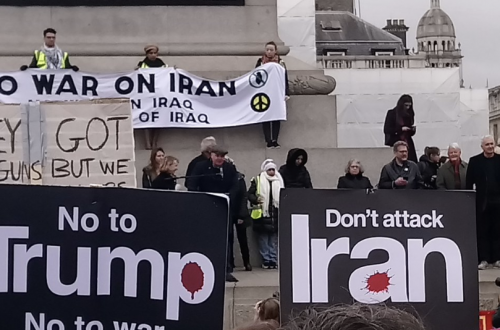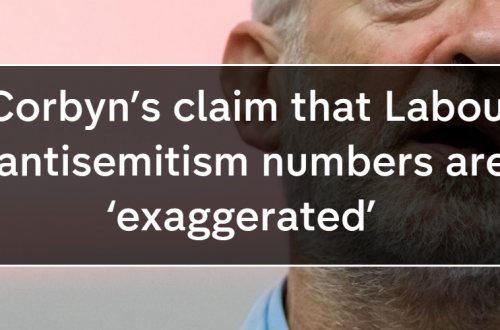This is a cross-post by Sohrab Ahmari, from the Huffington Post.
“I’m famished!”
All of us, at one point or another, have used these words to signal our discomfort with day-to-day hunger. Chances are, though, that we are far from extreme hunger or starvation when we reach for this phrase. In fact, we are likely minutes away from a satisfying meal.
A friend and mentor of mine likes to point out that the use of the words, “I’m famished,” is perhaps the simplest and most common form of moral equivocation among English speakers. It’s an innocent hyperbole, of course: the utterer means no harm and almost always appreciates the difference between her mild feeling of hunger and the actual starvation that today grips places like North Korea and the Horn of Africa.
In politics, however, equivocation can be far more pernicious. It can distort and corrupt public discourse, divesting its subject of seriousness and a sense of perspective. It can escalate disagreements over matters of policy and opinion, which can be resolved by recourse to consensual politics, into irreconcilable enmity. Moral equivocation coarsens the fabric of liberal democratic societies.
Take the “Occupy Wall Street” movement, which has spread from New York to cities across the country. For days now, the movement’s leaders and their supporters in the liberal establishment have been branding the protests as an American answer to the Arab Spring. “This was absolutely inspired by Tahrir Square, by the Arab Spring movement,” a protestor told New York Times editorialist Nicholas Kristof — who gushingly approved the comparison in his column.
Next came David Swanson, an organizer with Occupy Washington, D.C., who took to Press TV, the state-run organ of the Islamist regime in Iran, to denounce Congress and President Obama, and mark the dawn of an American Spring.
“Well, you have a president [Barack Obama] who is not just continuing these wars and expanding on abuses of civil rights but is introducing job killing corporate trade agreements,” Swanson told PressTV’s anchor, ranting incoherently. “You have a Congress that now has a caucus to represent the interests of unmanned drones and people feel shut out, 99 percent of us feel shut out and we planned this occupation to begin on Thursday in Washington D.C. months ago inspired by the Arab Spring to mark the ten-year anniversary of invading Afghanistan.”
That the outlet he was addressing represents a brutal theocracy with the blood of thousands of dissidents on its hands seemed to have eluded Mr. Swanson.
When the movement arrived in my adopted hometown of Boston, I went down to Dewey Square, across the street from historic South Station, to watch as protestors set up their “occupation.” I spoke with dozens of protestors — mostly smartphone-wielding young hipsters and students. They were invariably eager to draw some vague connection between their activism and the pro-democracy revolts that began in Tunisia and spread across the Arab world.
Yet, watching the event from the sidelines, I was struck by the sharp contrasts between Occupy Boston — whatever its merits — and the Arab uprisings.
I did not witness police officers rushing into crowds, wielding batons and truncheons. The Boston police officers I saw were respectfully keeping their distance, guaranteeing the safety of protestors while also ensuring that the occupation does not hinder the economic life of the city.
I did not witness reporters having their cameras confiscated — and slapped around for good measure. The reporters I saw were interviewing protestors without the interference of some vicious internal security apparatus.
I did not witness protestors being hauled off en masse to God-knows-which-brutal-detention-center by plainclothes operatives. Pro-government paramilitary thugs were not shooting dissidents at point-blank range. In fact, there were no paramilitary thugs to be seen.
So, no, Wall Street is not Tahrir Square. Los Angeles is not Damascus. And to make the comparison is to denigrate the courage of brave young Arab dissidents who took on ruthless dictatorial regimes entrenched for decades. Nor are our financial institutions and the much-detested “top 1%” comparable to Baathist elites.
Boston is not Benghazi.
From both a moral and strategic perspective, then, the protestors would be wise to ground their protest in our basic republican ethos and constitutional culture. Here in Boston, that culture is on full display over at Out of Town News, the legendary Harvard Square newsstand — from their tent city, just a few stops down the Red line — which sells hundreds of newspapers and magazines from every corner of the world and across the ideological spectrum. It is on display whenever the Massachusetts General Court deliberates, as it has since the colonial era. It is on display in downtown Boston’s magnificent architecture, each building a monument to the power of free societies to unleash human potential.
We are not famished.


